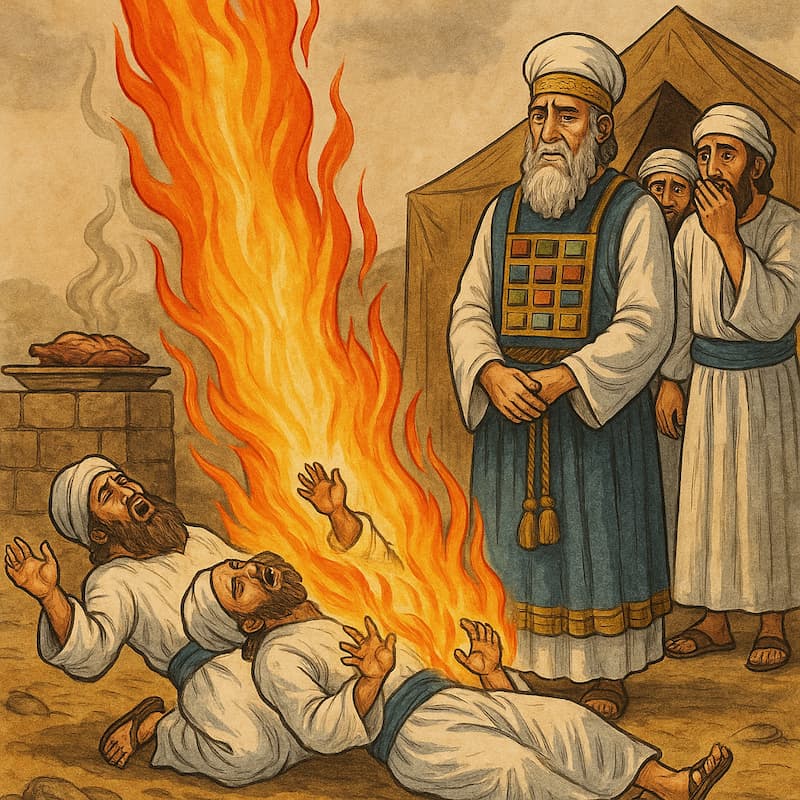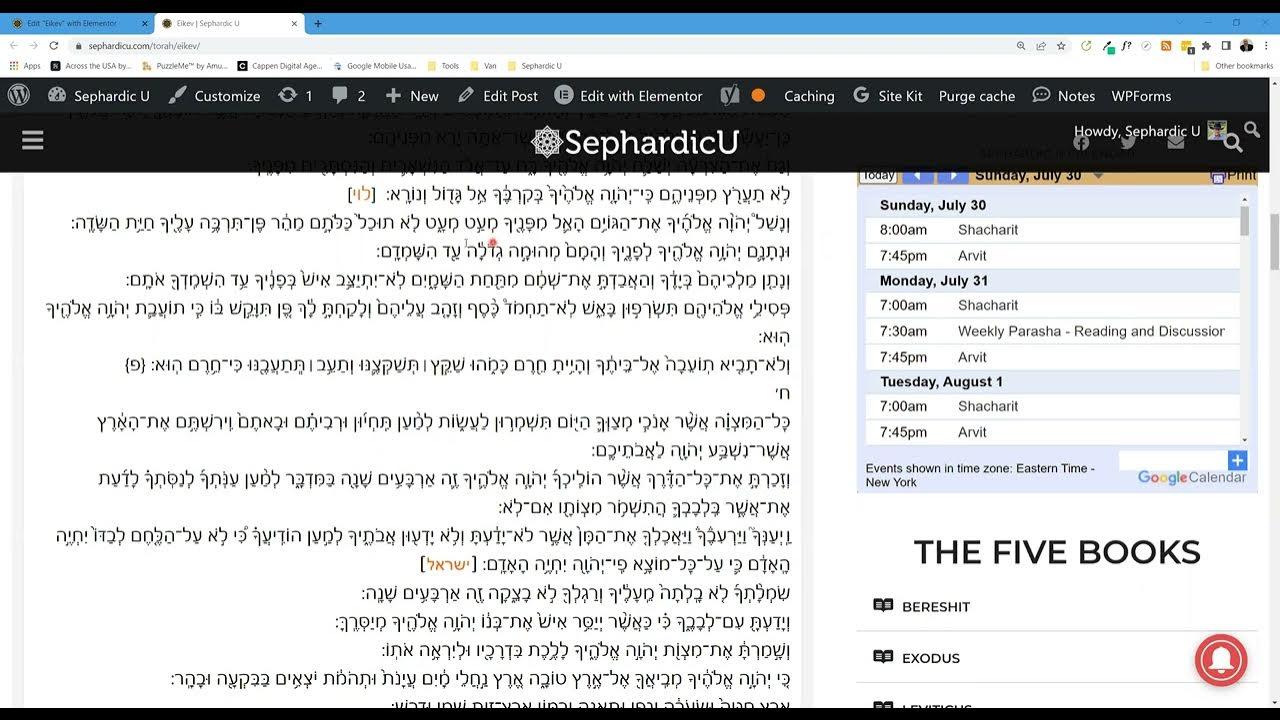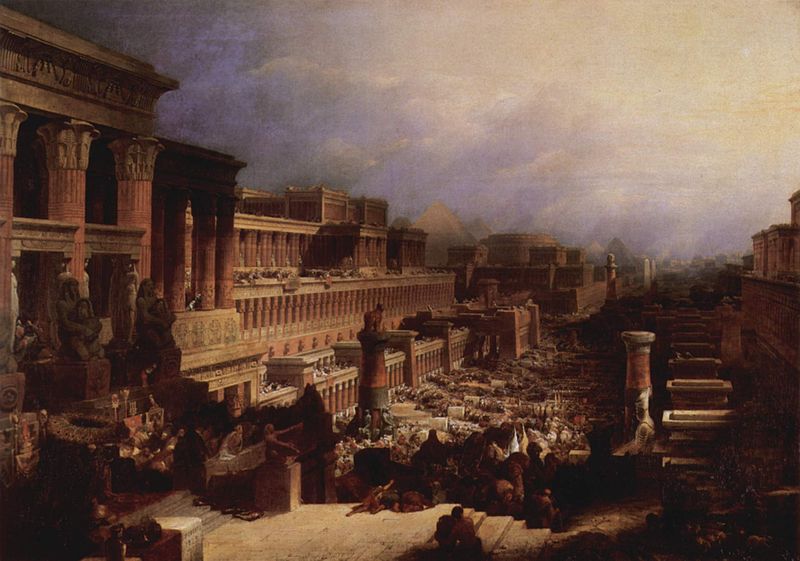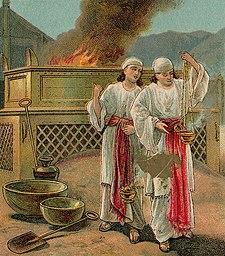| Aspect | Description |
|---|---|
| Parasha Number | The 3rd Parasha in the Book of Leviticus (Vayikra). |
| Parasha Name | Shemini (שְּׁמִינִי), translating to “Eighth” in Hebrew, referencing the eighth day of the consecration of the Tabernacle. |
| Torah Book | Leviticus (Vayikra). |
| Number of Verses | Comprises 91 verses. |
| Number of Words | Approximately 1,449 words in the Hebrew text. |
| Primary Characters | Key figures include Moses, Aaron, Nadab, Abihu, and various priests, with God communicating instructions regarding sacrifices and rituals. |
| Key Themes | Focuses on the inauguration of the Tabernacle and the priesthood, the consequences of unauthorized worship, and the laws of ritual purity, emphasizing reverence for the divine and adherence to prescribed rituals. |
| Significant Events | Describes the tragic deaths of Nadab and Abihu due to offering unauthorized fire before the Lord, the purification rituals after their deaths, and the dietary laws delineating clean and unclean animals. |
| Notable Quotes | “Moses said to Aaron, ‘Approach the altar and perform your sin offering and your burnt offering…'” |
| Legacy | Parashat Shemini contributes to the foundational understanding of Jewish rituals and ethical conduct, highlighting the consequences of deviating from prescribed practices and |
| Relevance Today | The themes of reverence for the divine, adherence to prescribed rituals, and consequences of unauthorized actions remain relevant in contemporary Jewish practice. |
| Well-Known Stories | Include the inauguration of the Tabernacle, the deaths of Nadab and Abihu, and the delineation of dietary laws. |
| Special Observances | Integral to synagogue services, prompting reflection on reverence for the divine, adherence to prescribed rituals, and the consequences of unauthorized worship. |
| Connections to Texts | Shemini builds upon preceding narratives in Exodus, particularly the construction of the Tabernacle, and sets the stage for the Israelites’ journey through the wilderness. |
| Theological Significance | Highlights the importance of reverence for the divine, adherence to prescribed rituals, and the consequences of unauthorized worship for maintaining spiritual purity and holiness. |
Parashat Shemini, the 3rd portion in the Book of Leviticus (Vayikra), marks a pivotal moment in the establishment of Israelite ritual practices. It opens with the account of the eighth day following the consecration of the Tabernacle, a day of immense significance in the religious calendar. On this day, Aaron and his sons, the priests, are instructed in their sacred duties by Moses.
Central to the themes of Shemini is the concept of holiness and purity in worship. Detailed instructions are given regarding the offering of sacrifices, emphasizing the importance of approaching God with reverence and purity. The tragic deaths of Aaron’s sons, Nadab and Abihu, serve as a stark reminder of the necessity of strict adherence to divine commandments.
Moreover, Shemini delineates laws concerning dietary purity, distinguishing between clean and unclean animals. These regulations underscore the broader principle of maintaining purity in all aspects of life, both ritual and ethical.
Throughout the portion, Moses acts as the mediator between God and the people, conveying divine commandments and instructions for the proper observance of rituals. Shemini also details the consecration of the priesthood, setting Aaron and his sons apart for their sacred duties within the Tabernacle.
As one of the initial portions in Leviticus, Parashat Shemini lays the groundwork for Israelite worship and ethical conduct. Its teachings emphasize the importance of obedience to divine commandments, the pursuit of holiness, and the consequences of deviating from prescribed practices. These lessons continue to resonate in contemporary Jewish practice, guiding believers in spiritual devotion, repentance, and moral living.
שמיני
ט׳:א׳-כ״ד
Shemini
Leviticus 9:1-11:47
Through those near to Me I show Myself holy,
And gain glory before all the people.”
And Aaron was silent.
שמואל ב
ו׳:א׳-י״ט
II Samuel
6:1-19
Then David and all the troops that were with him set out from Baalim of Judah to bring up from there the Ark of God to which the Name was attached, the name LORD of Hosts Enthroned on the Cherubim.
They loaded the Ark of God onto a new cart and conveyed it from the house of Abinadab, which was on the hill; and Abinadab’s sons, Uzza and Ahio, guided the new cart.
They conveyed it from Abinadab’s house on the hill, [Uzza walking] alongside-c the Ark of God and Ahio walking in front of the Ark.
Meanwhile, David and all the House of Israel danced before the LORD to [the sound of] all kinds of cypress wood [instruments],-e with lyres, harps, timbrels, sistrums, and cymbals.
But when they came to the threshing floor of Nacon, Uzzah reached out for the Ark of God and grasped it, for the oxen had stumbled.
The LORD was incensed at Uzzah. And God struck him down on the spot for his indiscretion,-g and he died there beside the Ark of God.
David was distressed because the LORD had inflicted a breach upon Uzzah; and that place was named Perez-uzzah, as it is still called.
David was afraid of the LORD that day; he said, “How can I let the Ark of the LORD come to me?”
So David would not bring the Ark of the LORD to his place in the City of David; instead, David diverted it to the house of Obed-edom the Gittite.
The Ark of the LORD remained in the house of Obed-edom the Gittite three months, and the LORD blessed Obed-edom and his whole household.
It was reported to King David: “The LORD has blessed Obed-edom’s house and all that belongs to him because of the Ark of God.” Thereupon David went and brought up the Ark of God from the house of Obed-edom to the City of David, amid rejoicing.
When the bearers of the Ark of the LORD had moved forward six paces, he sacrificed an ox and a fatling.-j
David whirled with all his might before the LORD; David was girt with a linen ephod.
Thus David and all the House of Israel brought up the Ark of the LORD with shouts and with blasts of the horn.
As the Ark of the LORD entered the City of David, Michal daughter of Saul looked out of the window and saw King David leaping and whirling before the LORD; and she despised him for it.
They brought in the Ark of the LORD and set it up in its place inside the tent which David had pitched for it, and David sacrificed burnt offerings and offerings of well-being before the LORD.
When David finished sacrificing the burnt offerings and the offerings of well-being, he blessed the people in the name of the LORD of Hosts.
And he distributed among all the people—the entire multitude of Israel, man and woman alike—to each a loaf of bread, a cake made in a pan, and a raisin cake.-f Then all the people left for their homes.
Shemini
more on Parashat Parashat Shemini: Tabernacle Sanctified
Quick Guide: The Five Books of Moses
| Genesis | Exodus | Leviticus | Numbers | Deuteronomy |
|---|---|---|---|---|
| Bereshit (1:1-6:8) |
Shemot (1:1-6:1) |
Vayikra (1:1-5:26) |
Bemidbar (1:1-4:20) |
Devarim (1:1-3:22) |
| Noach (6:9-11:32) |
Va'era (6:2-9:35) |
Tzav (6:1-8:36) |
Naso (4:21-7:89) |
Va'etchanan (3:23-7:11) |
| Lech Lecha (12:1-17:27) |
Bo (10:1-13:16) |
Shemini (9:1-11:47) |
Behaalotecha (8:1-12:16) |
Ekev (7:12-11:25) |
| Vayera (18:1-22:24) |
Beshalach (13:17-17:16) |
Tazria (12:1-13:59) |
Shelach (13:1-15:41) |
Re'eh (11:26-16:17) |
| Chaye Sarah (23:1-25:18) |
Yitro (18:1-20:23) |
Metzora (14:1-15:33) |
Korach (16:1-18:32) |
Shoftim (16:18-21:9) |
| Toledot (25:19-28:9) |
Mishpatim (21:1-24:18) |
Achare Mot (16:1-18:30) |
Chukat (19:1-22:1) |
Ki Tetze (21:10-25:19) |
| Vayetze (28:10-32:3) |
Terumah (25:1-27:19) |
Kedoshim (19:1-20:27) |
Balak (22:2-25:9) |
Ki Tavo (26:1-29:8) |
| Vayishlach (32:4-36:43) |
Tetzaveh (27:20-30:10) |
Emor (21:1-24:23) |
Pinchas (25:10-30:1) |
Nitzavim (29:9-30:20) |
| Vayeshev (37:1-40:23) |
Ki Tisa (30:11-34:35) |
Behar (25:1-26:2) |
Matot (30:2-32:42) |
Vayelech (31:1-30) |
| Miketz (41:1-44:17) | Vayakhel (35:1-38:20) |
Bechukotai (26:3-27:34) |
Masei (33:1-36:13) |
Haazinu (32:1-52) |
| Vayigash (44:18-47:27) |
Pekude (38:21-40:38) |
V'Zot HaBeracha (33:1-34:12) |
||
| Vayechi (47:28-50:26) |











